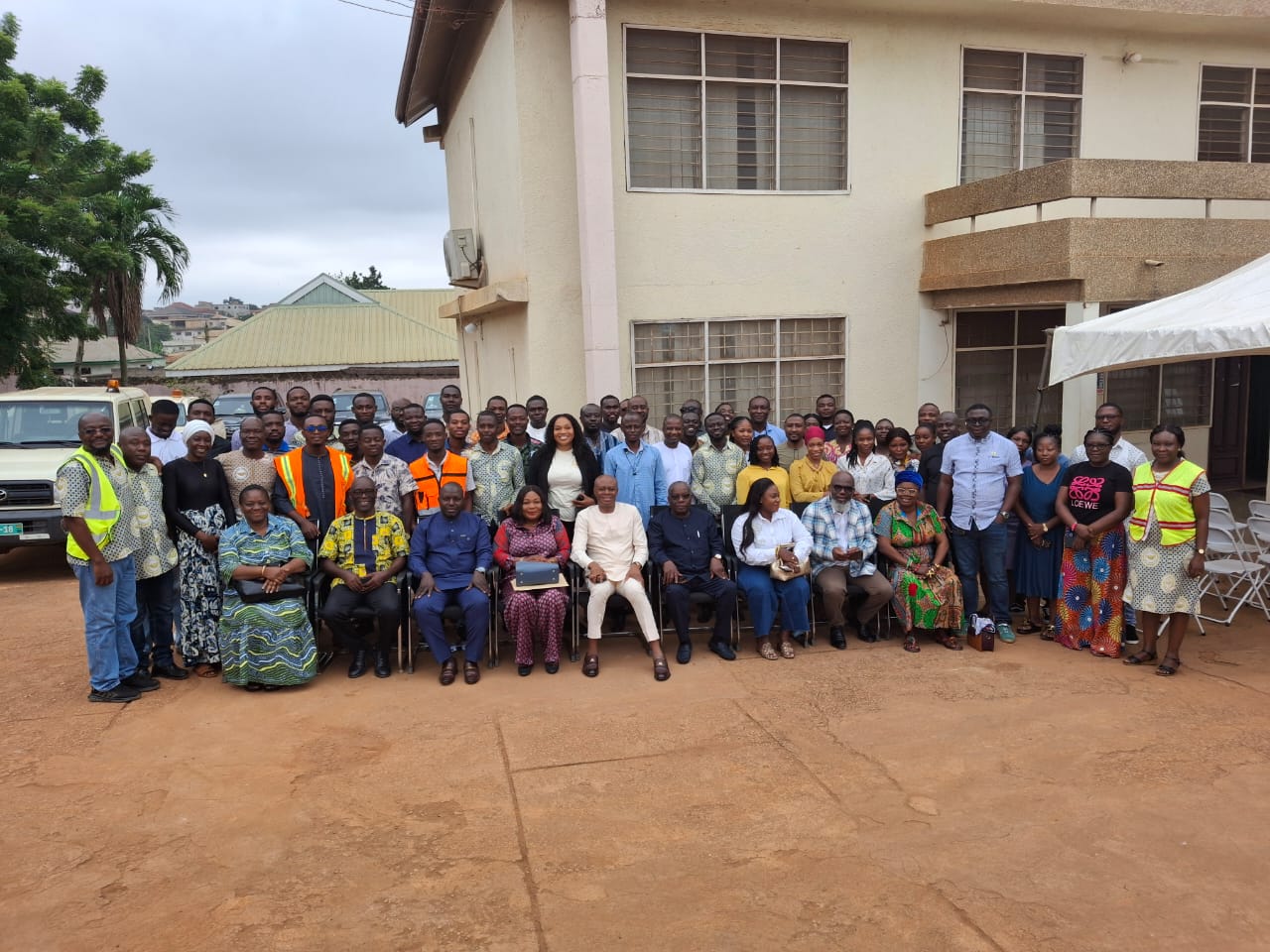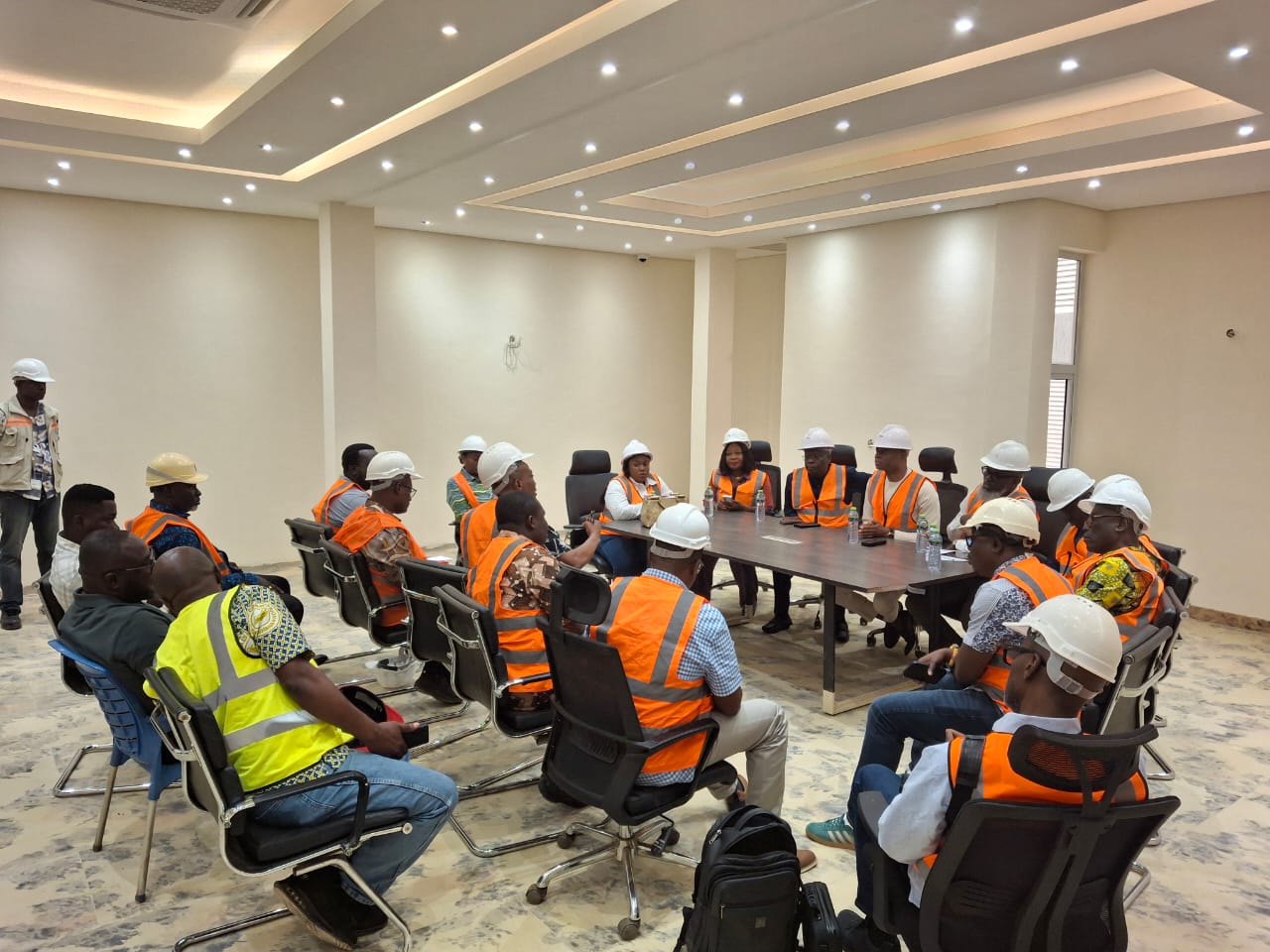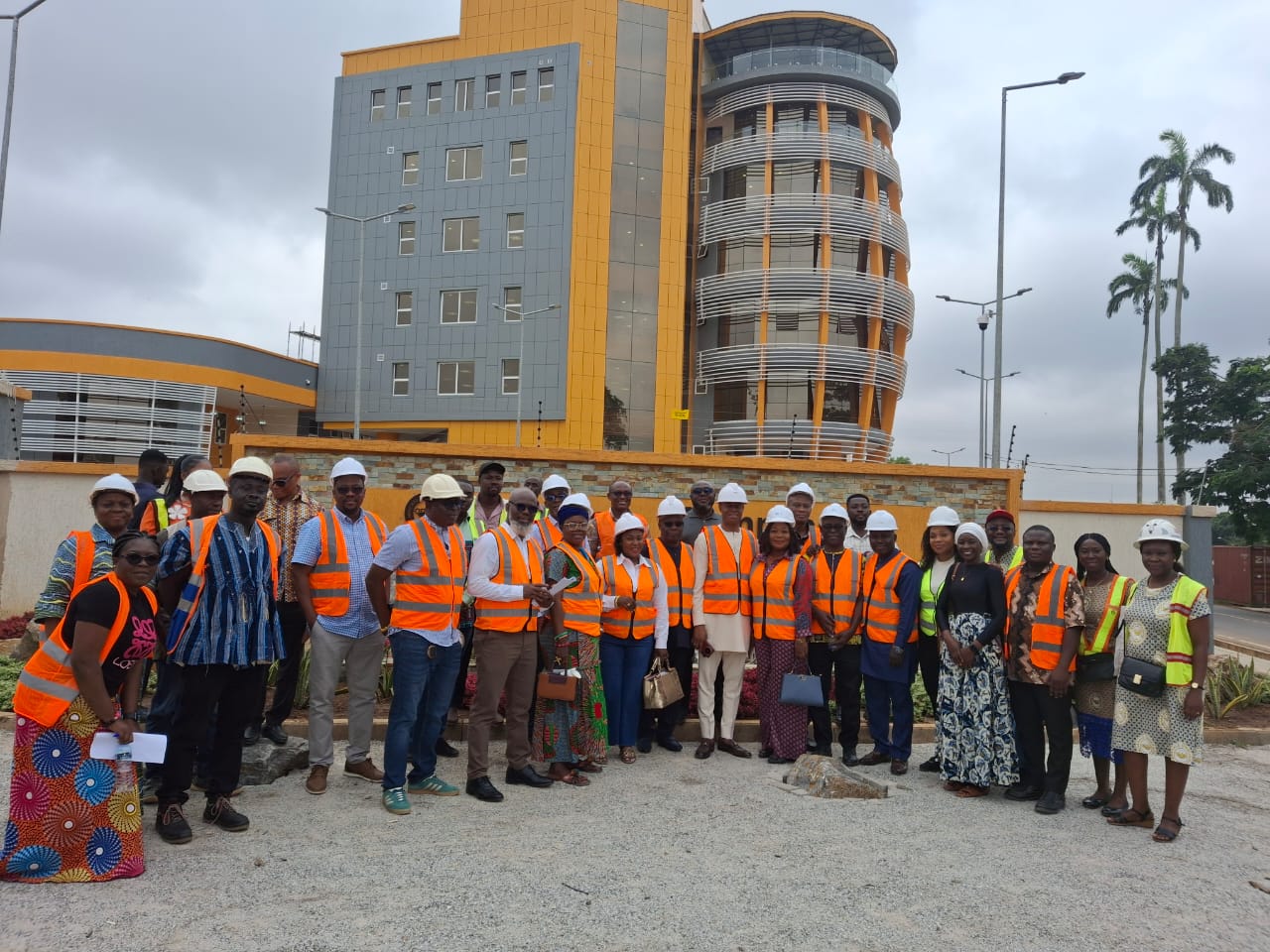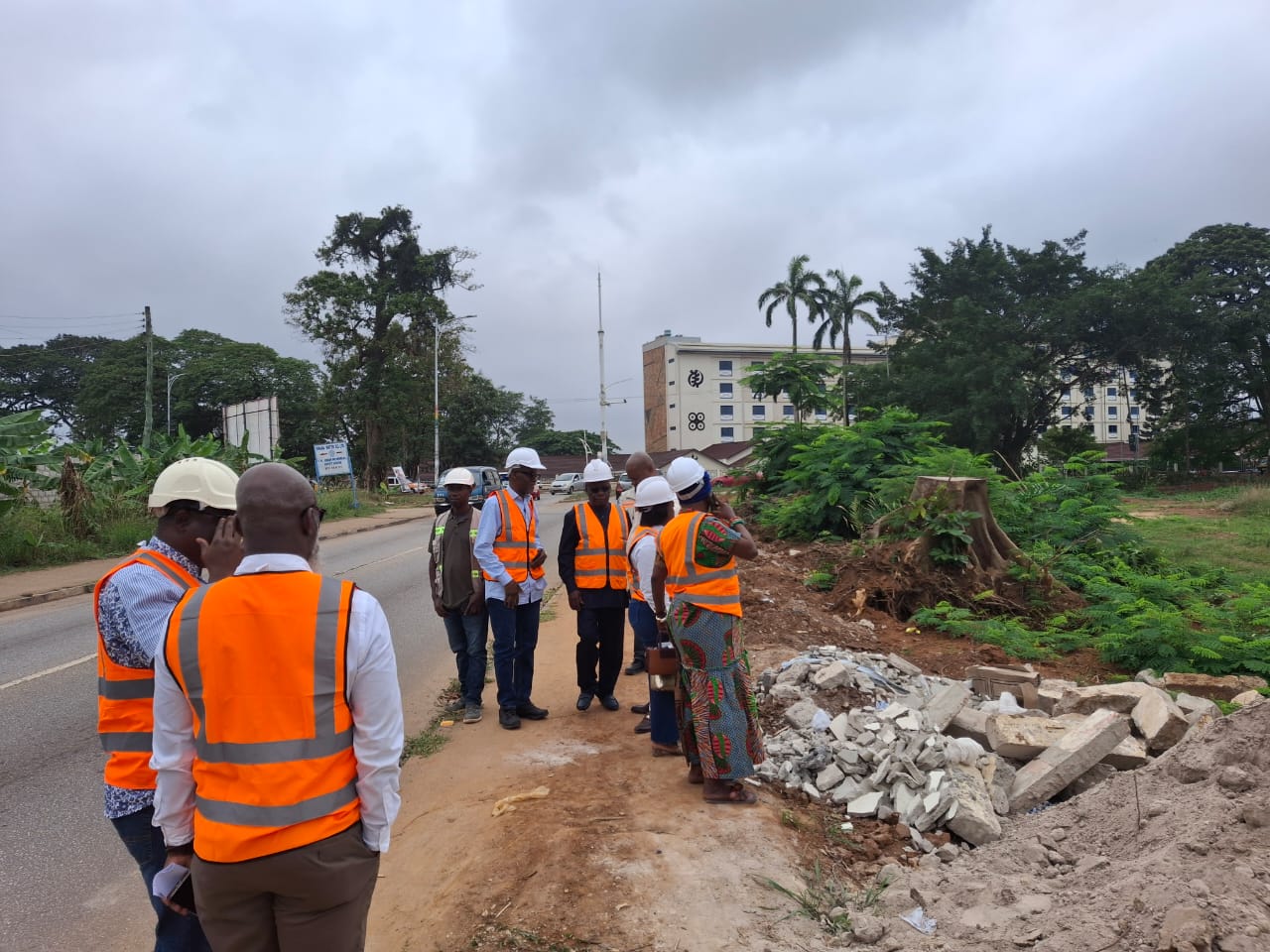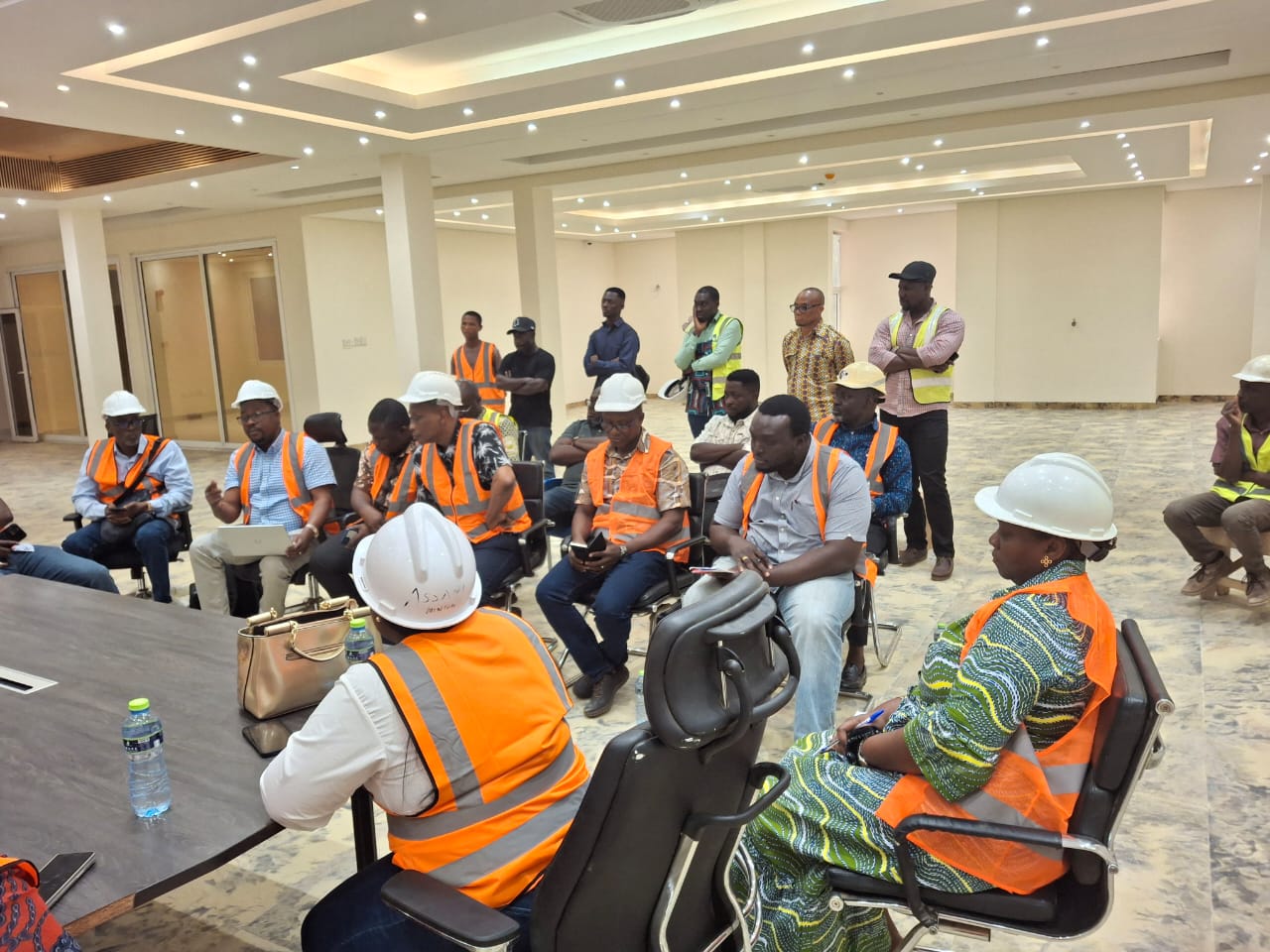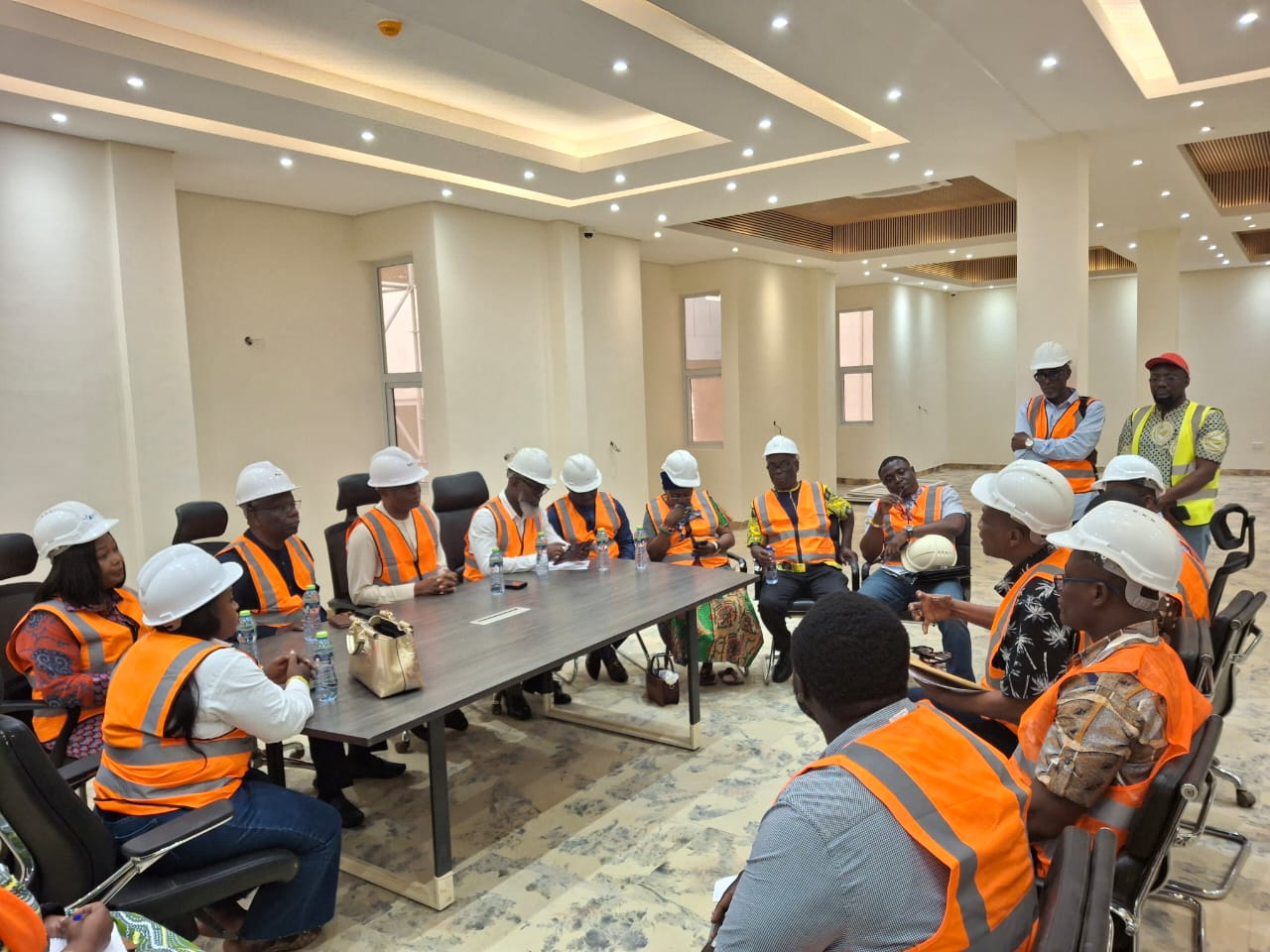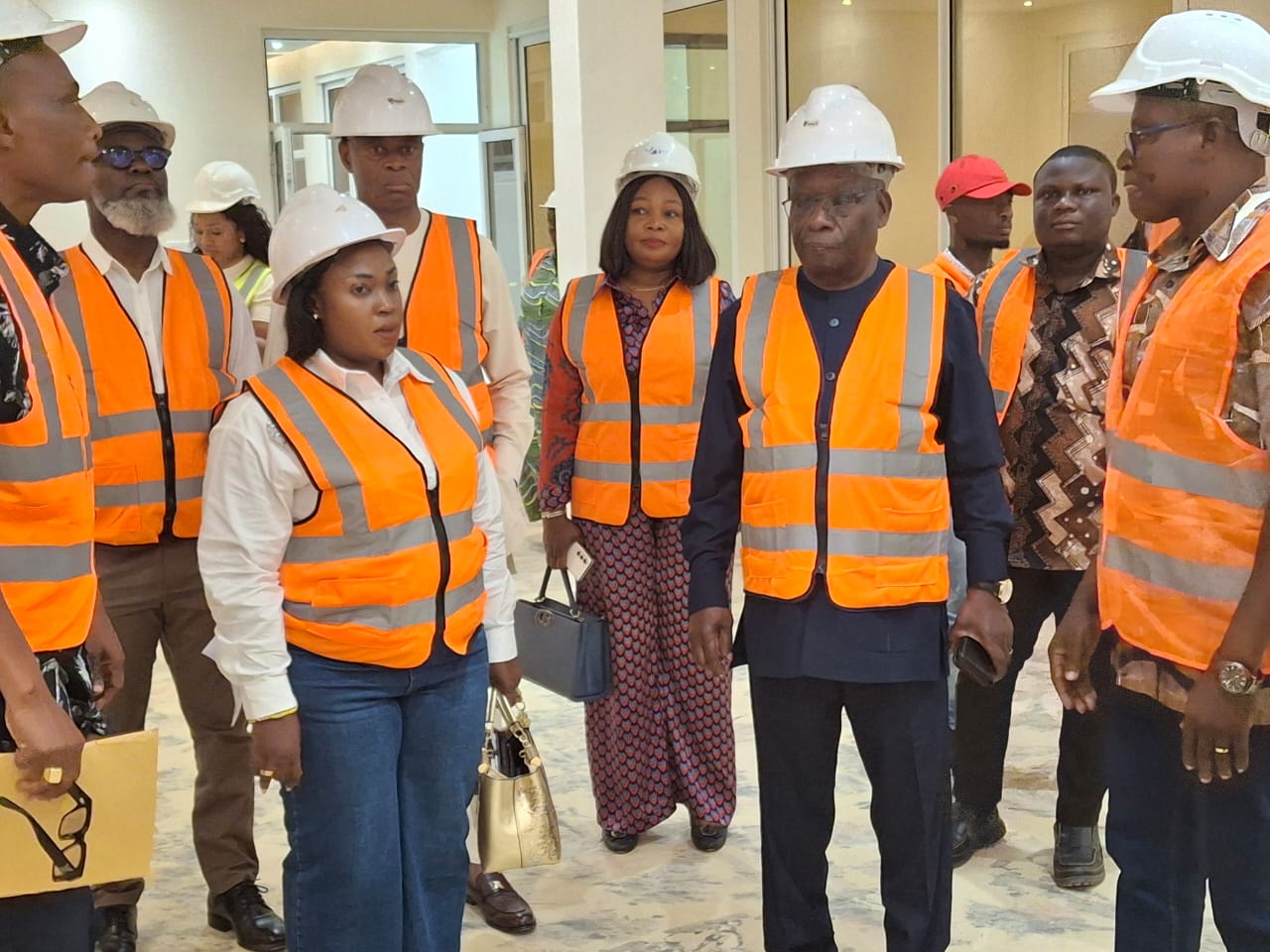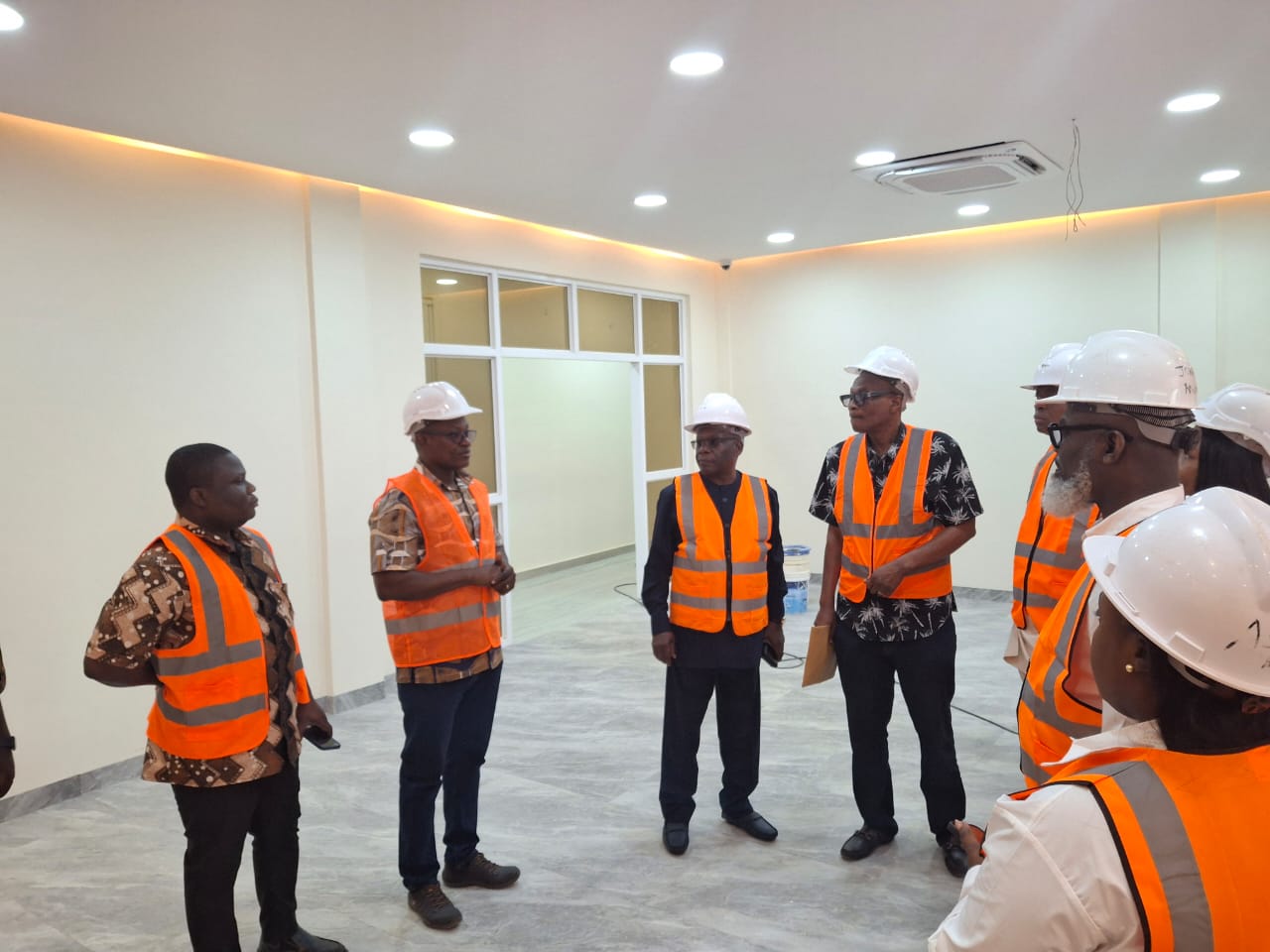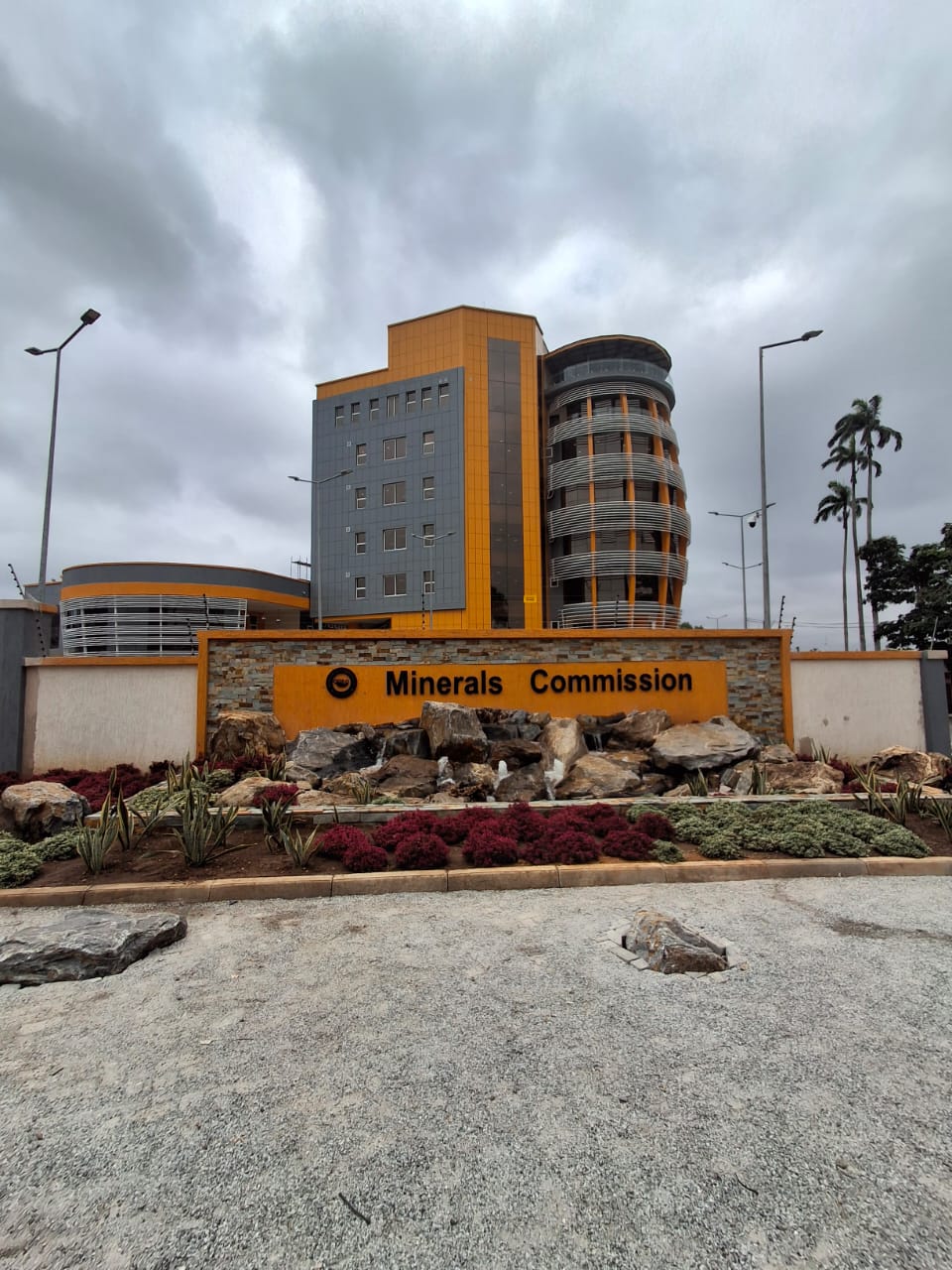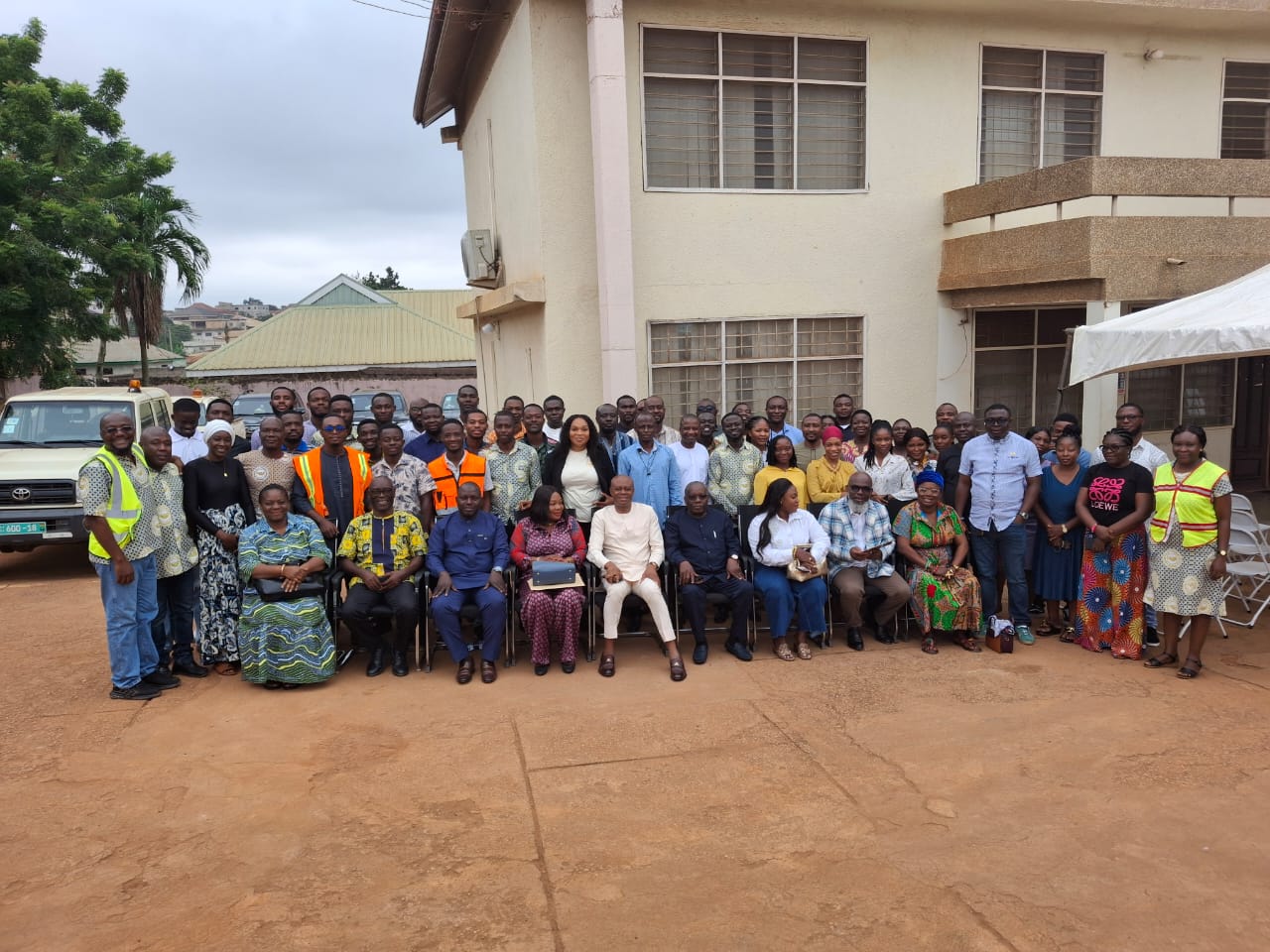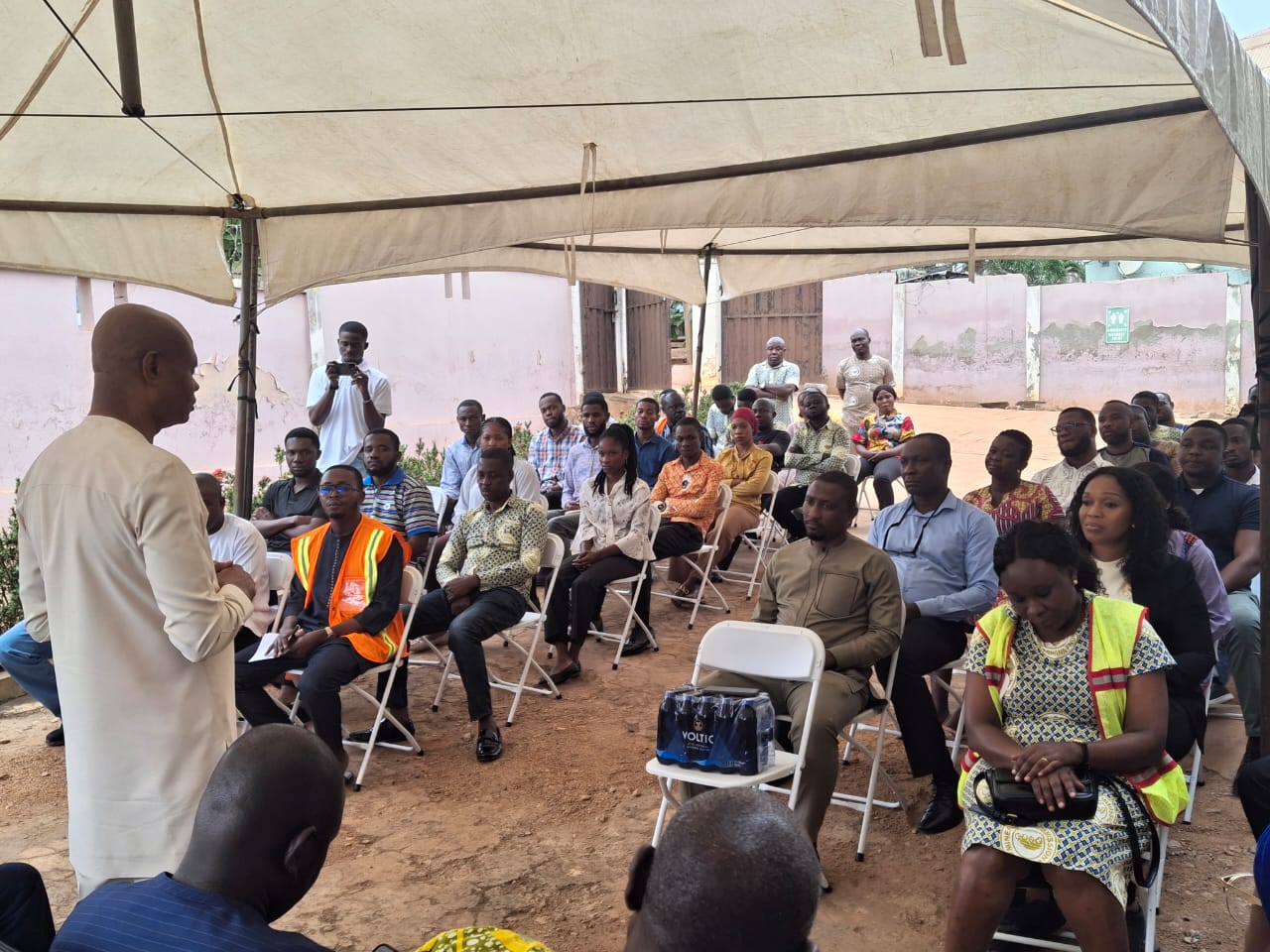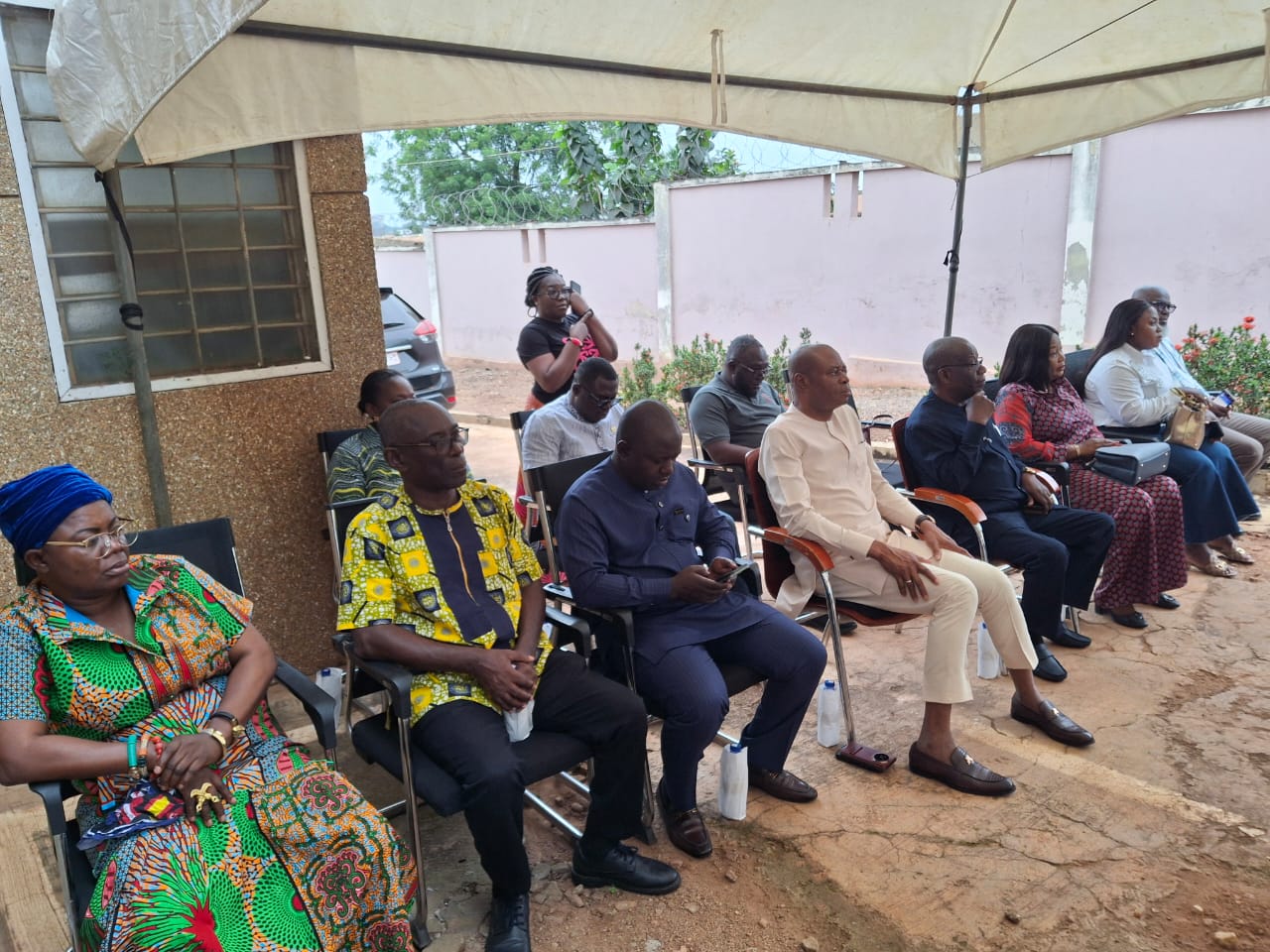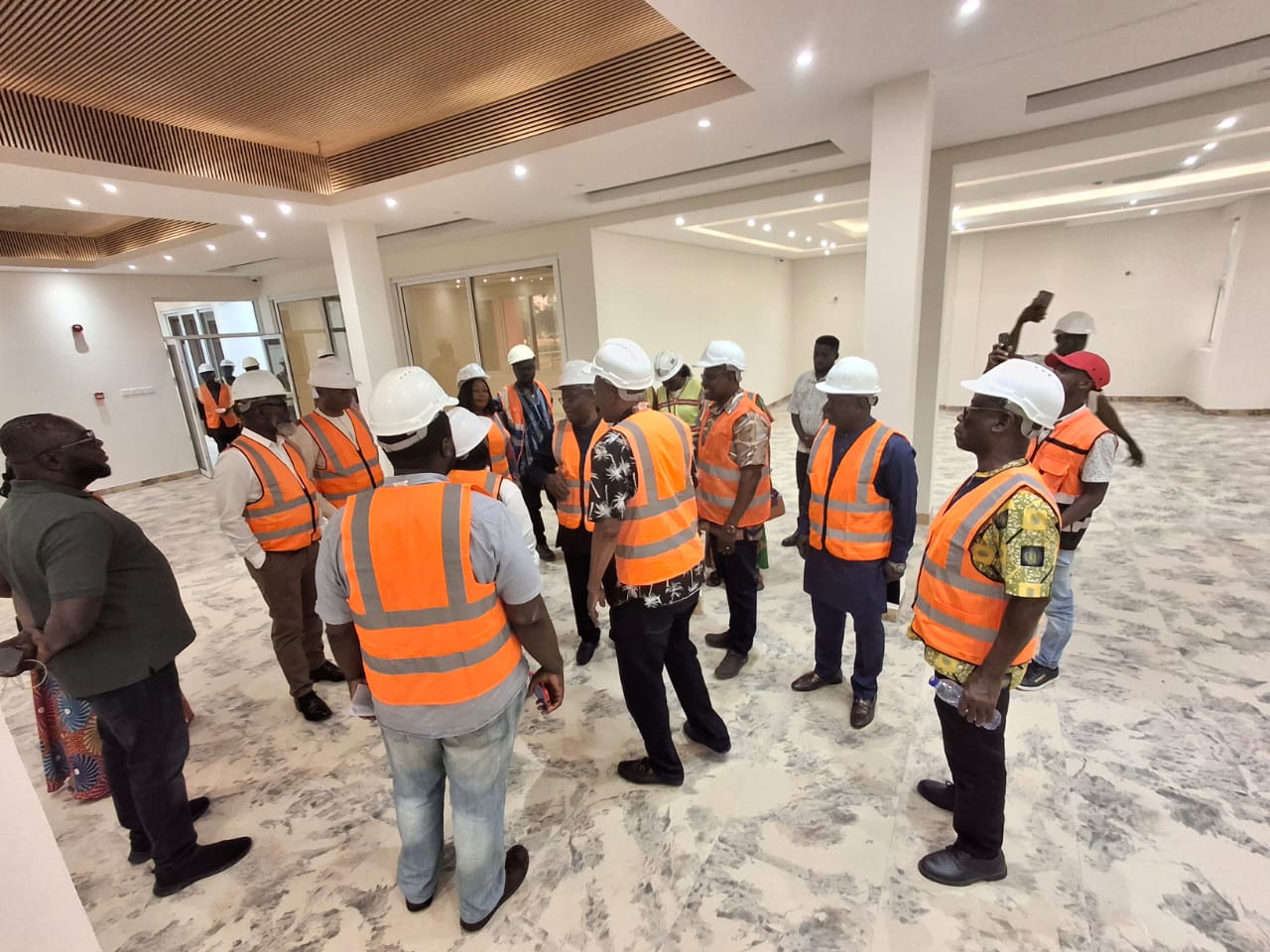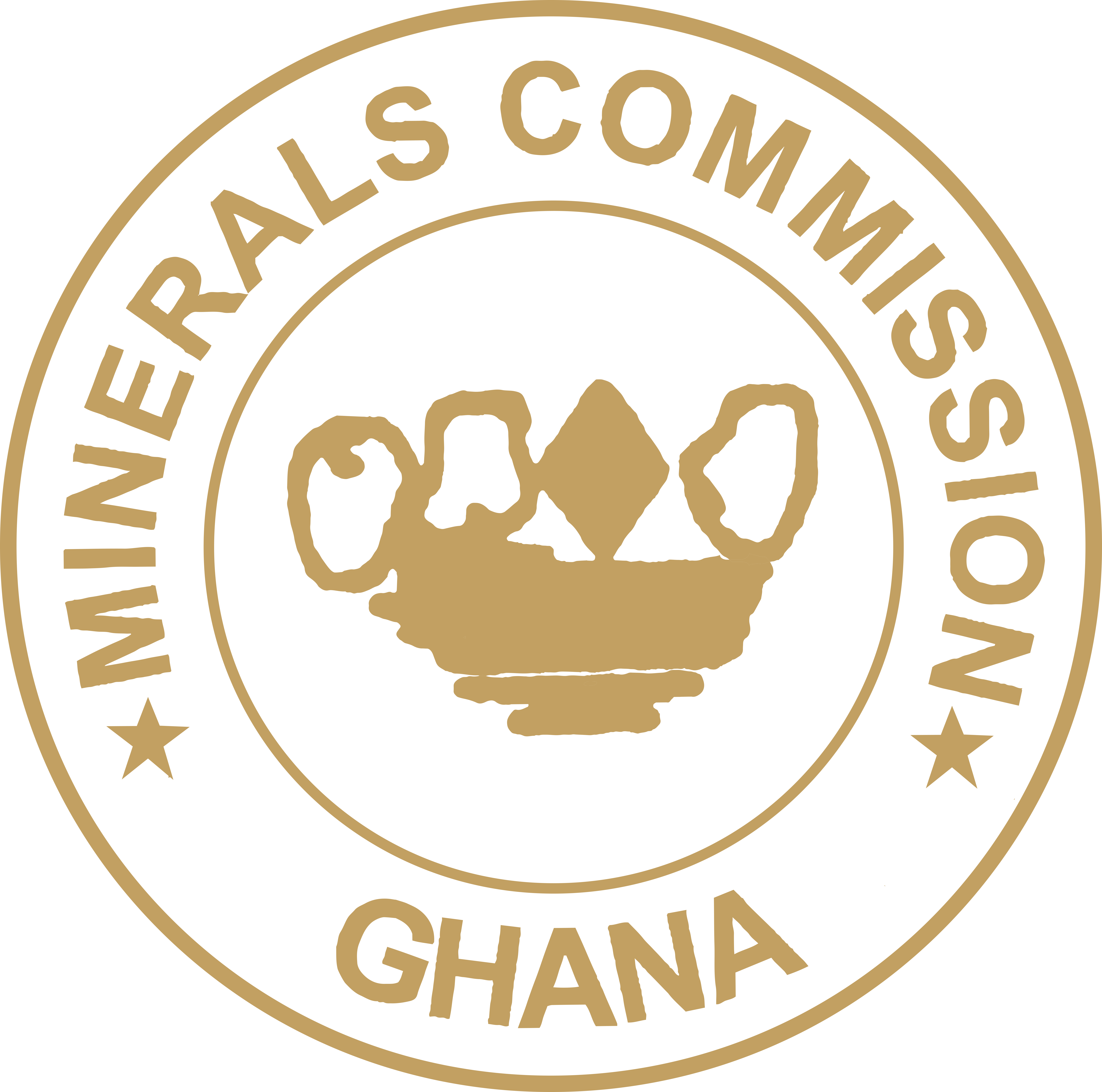Minerals Commission Board Concludes Review of New Kumasi Regional Office Complex.
The Minerals Commission Board, under the leadership of Chairman, Ambassador William Ntow Boahene (Esq.), has successfully concluded a strategic working visit to the Kumasi Regional Office as part of its nationwide regional tour. The visit, which follows similar engagements in Tamale and Bole, underscores the Commission’s commitment to decentralisation, operational efficiency, and staff welfare across all mining regions. This event was held on August 22, 2025.
Mr. Paul Dawson, Kumasi Regional Office Manager, together with his dedicated team, extended a warm and cordial welcome to the visiting Board delegation. The reception reflected the team’s enthusiasm and readiness to engage with the Board, setting a positive tone for the day’s activities. Their hospitality underscored the strong spirit of collaboration and professionalism that defines the Kumasi office, reinforcing the Commission’s commitment to fostering unity and shared purpose across its regional operations.
Ambassador Boahene, Chairman of the Board, formally introduced the board members and outlined the purpose of the visit. He emphasized the importance of fostering collaboration between the Board, management, and staff to drive the Commission’s growth and fulfill its mandate. The staff durbar was convened as a platform to engage openly, address concerns, and gather feedback on issues affecting staff welfare.
Present at the meeting were staff from the Head Office, namely: Mr. Emmanuel Kwamena Enyimah, Deputy CEO, Support Services, Mrs. Irene Demanya, Director of Legal and Solicitor Secretary, Emmanuel Nketia Frimpong, Deputy Manager, Estate, Madam Phyllis Adibi, Assistant Manager, Administration, Legal, Emmanuel K. Agyare, Senior Officer, Corporate Affairs and Ms. Amira Dari Iddisah, Assistant Officer, Administration, Legal.
In his remarks, Hon. Yusif Sulemana (MP), Deputy Minister for Lands and Natural Resources and Board member, delivered a compelling call to action, urging staff to remain loyal and committed to their duties in advancing the Commission’s mandate. He emphasized that the future of Ghana’s mining sector hinges on the dedication of its workforce and the strategic expansion of technical capacity across regional offices.
Hon. Sulemana underscored the importance of organizing Cooperative Mining in a structured and sustainable manner. He announced that ongoing stakeholder engagements are underway to allocate designated lands for this initiative, ensuring that artisanal and small-scale miners operate within regulated frameworks that promote environmental stewardship and community development.
Addressing the persistent challenge of illegal mining, the Board reaffirmed the government’s unwavering commitment to eradicating the menace. They also noted that efforts to reclaim degraded forest reserves and enforce compliance are being intensified, with a multi-agency approach driving results on the ground.
The Board further advocated for a comprehensive overhaul of the licensing regime, stressing the need for timely processing and transparency to reduce bottlenecks in the small-scale mining sector. According to the Board, streamlining these processes will not only curb illegal activities but also enhance investor confidence and operational efficiency. These remarks reflect a forward-looking agenda that blends policy reform, institutional accountability, and inclusive growth—positioning the Minerals Commission as a catalyst for sustainable development in Ghana’s extractive sector.
The Board members expressed deep appreciation for the dedication and professionalism of staff across the Commission. Their collective efforts were recognized as instrumental in advancing Ghana’s mining sector and supporting national development. Hon. Prof. Hamza Adam (MP), urged staff to maintain their steadfast commitment to excellence, emphasizing that sustained performance is key to achieving the Commission’s strategic objectives.
Prof. Gordon Foli highlighted the broader economic significance of the Commission’s work, commending staff for their pivotal role in driving growth and stability within the extractive industry. Nana Adwoa Foriwaa, called for responsible and transparent mineral resource management, underscoring the need to insulate the sector from political interference. She lauded the government’s ongoing initiatives aimed at promoting sustainable development and environmental stewardship.
The staff durbar provided a platform for open dialogue, where key operational concerns were raised, including:
- Logistical Constraints – the current allocation of vehicles and drivers is insufficient to support effective monitoring across five regions. This limitation is adversely impacting the quality and timeliness of regulatory activities. A request was made for fit-for-purpose vehicles to enhance operational efficiency.
- Field Risk Allowance – staff engaged in field operations highlighted the need for a dedicated risk allowance, recognizing the hazards associated with their duties.
- Outstanding Night Allowances – night duty allowances have remained unpaid for over two years, leading to staff demotivation. Concerns were also raised regarding the reconciliation process for these payments, which requires urgent attention.
- Human Resource and Fleet Management Challenges – managing the fleet of vehicles and drivers continues to pose operational difficulties. Additionally, the Kumasi office currently has only three cleaners, which is inadequate for the new office complex. Staff proposed recruiting additional personnel and regularizing the employment status of existing cleaners from temporary to permanent.
- Equity in Overnight Allowance Disbursement – instances of perceived discrimination in the disbursement of overnight allowances were reported, with calls for a more transparent and equitable process.
- Finance Team Risk Allowance – the finance team requested inclusion in the risk allowance scheme, citing their involvement in field-related financial operations.
- Provision of Personal Protective Equipment (PPEs) and Inventory Management – staff emphasized the need for the Commission to consistently supply PPEs. They also recommended a review of inventory and stock-taking procedures to ensure timely availability and accountability.
- Retention of National Service Personnel (NSPs) – personnel expressed interest in being retained after completing their service period, citing their contributions and desire to continue supporting the Commission’s work.
- Quarry Site Encroachment – encroachment on designated quarry sites was flagged as a potential national security concern. Staff urged swift intervention to prevent escalation and ensure regulatory control.
In response to the concerns raised by the staff, the Board members stated that they had initiated dialogue with the National Quarry Association to address the pressing issue of concession encroachment. The Board addressed concerns regarding the retention of NSPs, noting that while their contributions are valued, it is not financially feasible to absorb all personnel upon completion of their service.
To ensure a more strategic approach to staffing and resource allocation it was recommended that a comprehensive needs assessment be conducted and submitted to the Head Office for review by management and the Board. The Regional Manager and Head of Administration were tasked to prepare and submit the required documentation to facilitate further discussions and informed decision-making. It was further proposed that, where feasible, each regional office be treated as a cost centre—an approach believed to enhance financial accountability and improve revenue generation.
Ambassador Boahene further announced that the Board is currently reviewing the Commission’s organogram as part of efforts to advance decentralisation. Upon implementation, regional and district offices will be empowered with greater autonomy and operational capacity. The Board Chairman reiterated that the government’s reset agenda must be reflected in the Commission’s strategic direction and day-to-day operations, ensuring alignment with national development priorities.
Nana Yaa Gyandoh I, emphasized the importance of providing a detailed breakdown of staff strength, including gender and other demographics, to inform strategic planning and resource allocation. She expressed concern over the backlog in processing small-scale mining licenses, noting that this challenge continues to hinder operational efficiency. Nana Gyandoh also addressed allegations of bribery and corruption involving staff, stressing that such practices must be decisively curtailed. “We must set the standard right,” she stated, calling for integrity and accountability across all levels of the Commission.
In closing, Hon. Emelia Ankomah (MP) extended her appreciation to the staff for their dedication and reaffirmed the Board’s full support and commitment to addressing the issues raised. She also pledged continued collaboration with management and staff to ensure progress and uphold the Commission’s mandate.
During the visit, the Board also conducted an on-site inspection and a comprehensive project review meeting with Pear River Company Limited (Contractor), Fasota Limited (Consultant), followed by a closed-door technical session to assess progress and address implementation challenges. The Board Chairman, Ambassador Boahene echoed the importance of maintaining quality standards and adhering to timelines, emphasizing that the project must be delivered to the highest standard. The delegation received a detailed briefing on the status of construction and infrastructure enhancements. While the project was not delivered as a turnkey package, the Board commended the overall quality of work executed so far.
It was recommended that key outstanding components (i.e. solar installations, internal partitioning, and the addition of auxiliary works) must be submitted to the Board for final review and approval. With approximately 5% of work remaining, completion is anticipated in the near term, paving the way for full operational readiness of the facility.
The Kumasi visit exemplifies the Board’s hands-on, proactive approach to governance and project management. By moving its deliberations from the national capital to the regional offices, the Commission demonstrates a clear intent to understand field-level realities, drive tangible progress, and strengthen accountability.
END.
